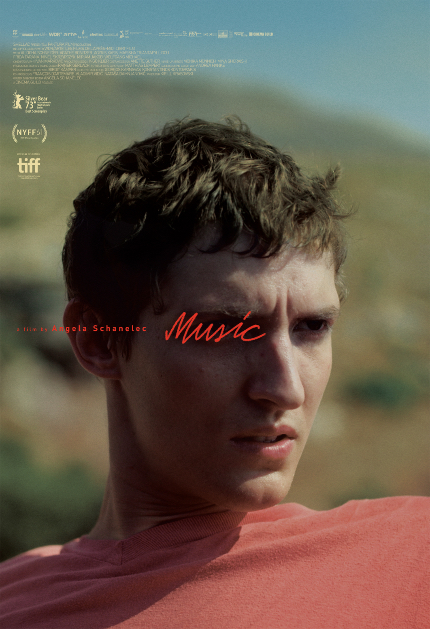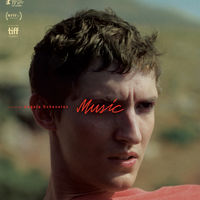
Songs in the key of life


Angela Schanelec’s new, almost silent film with the simple title Musicis supposedly “loosely” based on the Greek Oedipus myth.
It is perhaps the most enigmatic work by the esteemed German director. But his portrayal of the melancholy and fragility of human life is nevertheless so beautiful and timeless that I have tears in my eyes by the end.
As always in Schanelec’s films, there are striking images and a hint of narrative, with many gaps that you have to fill in yourself. Time is elastic in Music; in one scene we see an infant being found and adopted, in the next we see Jon (Aliocha Schneider) accidentally killing someone (his father?) and going to prison.
There’s a prison guard, Iro (French actress Agathe Bonitzer), who tends to his swollen feet – like Oedipus tends to his unsuspecting mother/lover – and gives him a list of classical composers to listen to. Then he’s out of prison and they’re expecting a baby. But as fate would have it, Jon is struck by tragedy when his past catches up with him. He’s now a musician and lives in Berlin with his grown-up daughter. On stage, he sings melancholy songs in falsetto. And he’s going blind.
Static framing and stoic acting, as Schanelec has developed over the years, are omnipresent here. Crucial, life-changing actions take place largely off-screen. There is almost no dialogue. And it doesn’t really matter whether Jon looks the same after many years, if not decades, as he did before.
Schanelec once told me that she usually creates an idea for a project based on one or two images. This time she is taking inspiration from Greek theater. And images in Music are indeed impressive. The windswept, rocky Greek terrain set against the stunning blue Aegean sea and sky in the first half is a reminder of both the timelessness of nature and our transience in it.
The static, staged scenes featuring groups of young people – a street gang, wistful prison inmates, spectators dressed in uniformed kitchen staff – are strongly reminiscent of the world of Aki Kaurismäki. And of course, music flows where dialogue would otherwise have been, with the help of Canadian musician Doug Tielli’s high-pitched voice (a cross between Sigur Rós and Nick Drake). His songs serve not only as a Greek chorus recording Jon’s melancholy, but also as testaments to the beauty of music transcending this fleeting dream we call human existence.
The long tracking shot at the end of the film, shot from across the river bank as the characters walk and sing on this beautiful summer day, gives the feeling of an eternity. Music is a painfully beautiful film.
The review was originally published in October 2023, when the film made its U.S. premiere at the New York Film Festival. The Cinema Guild will release the film on Friday, June 28, first in New York and then in select theaters in Canada and the U.S. For more information, visit the official website.
Dustin Chang is a freelance writer. His thoughts and opinions on all things cinema and beyond can be found at www.dustinchang.com

Do you find this content inappropriate or infringes your rights? Click here to report it or read our DMCA policy.



